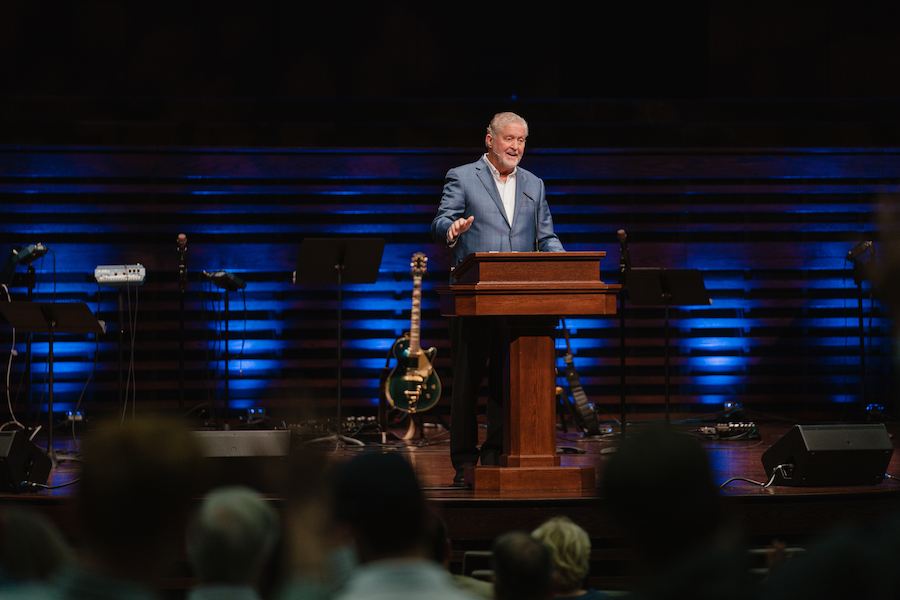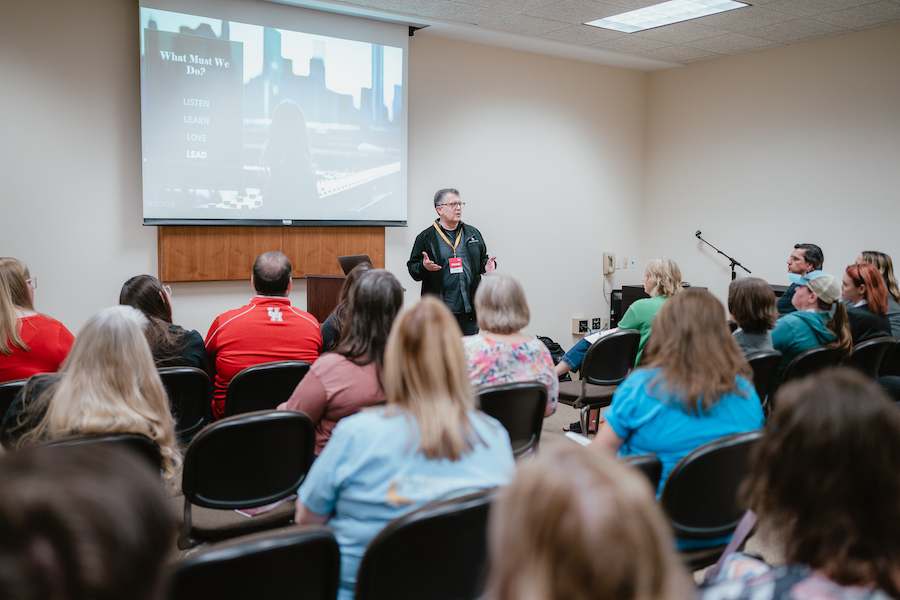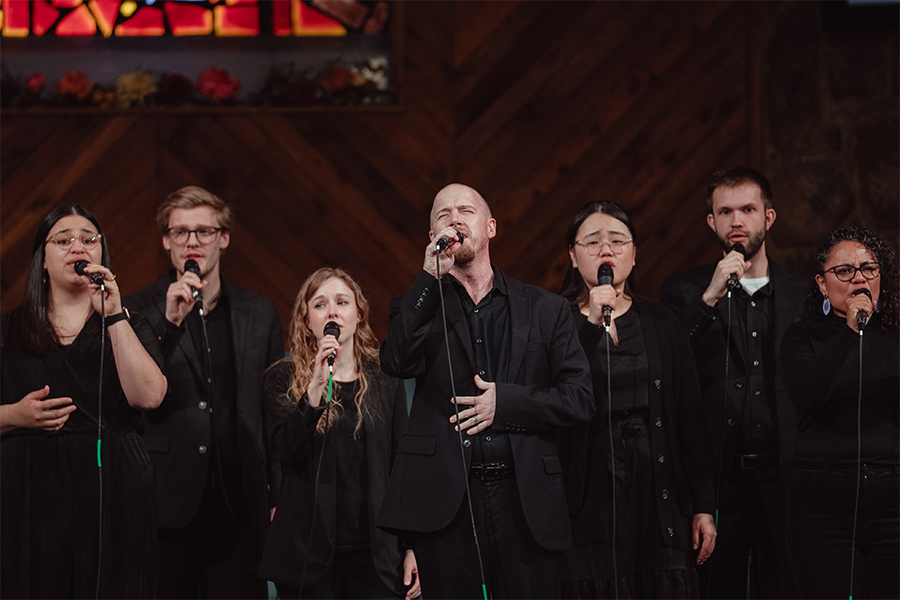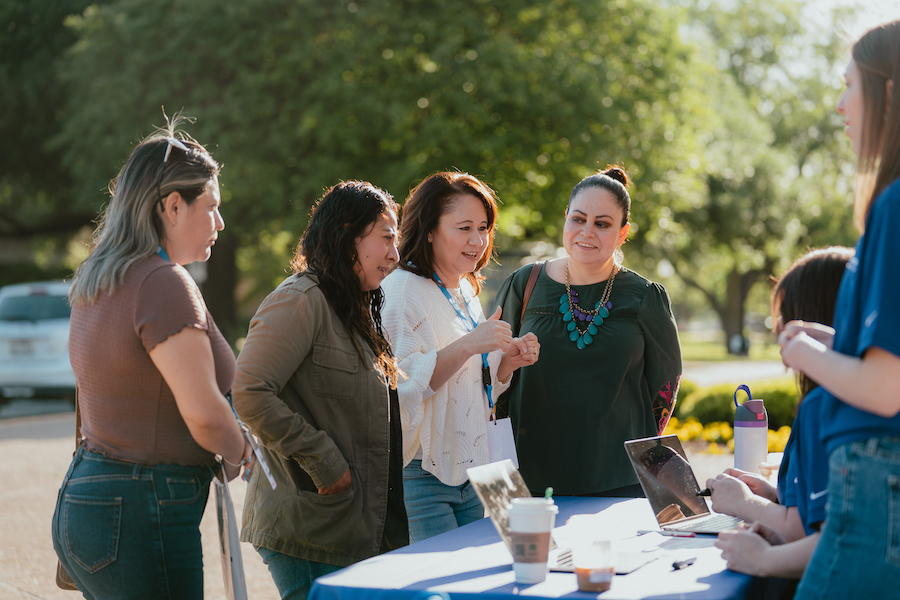IACE conducts second annual conference
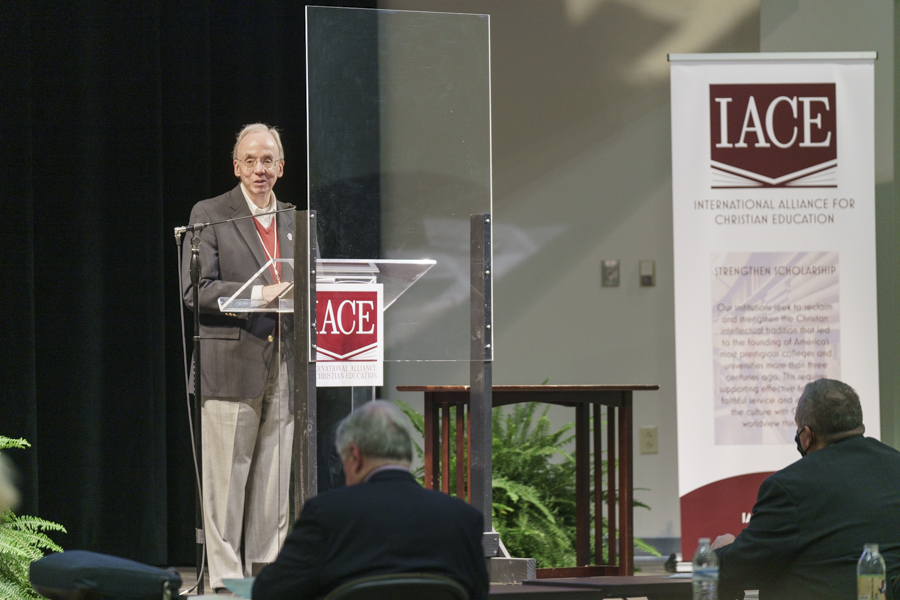
Editor’s Note: This news release was written by Mark D. Kahler, IACE director of communication. Slight additions and stylistic adjustments have been made by SWBTS staff.
Leaders in Christian education gathered at the Riley Conference Center on the campus of Southwestern Baptist Theological Seminary Feb. 3-5 for the second annual conference of the International Alliance for Christian Education.
The IACE has 62 member or affiliate institutions of higher learning, and 17 other member organizations representing locations in the United States and beyond. About 100 representatives of those entities attended the Fort Worth event, with another 40 attending virtually through online streaming. This year’s total attendance represents about a 40 percent increase from that of last year’s inaugural annual conference in Orlando.
“IACE in 2020 exceeded all of my expectations,” said IACE President David S. Dockery, interim provost and distinguished professor of theology at Southwestern Seminary. “From what I’ve heard, it exceeded your expectations as well.”
Southwestern Seminary President Adam W. Greenway brought greetings to the group, welcoming them to the seminary’s Fort Worth campus and expressing his excitement and support for the mission of the IACE.
At a luncheon session Feb. 4, Dockery summarized first-year accomplishments for the IACE, and later led a discussion about opportunities for growth in 2021. He mentioned that early on in the pandemic, the IACE led timely online discussions about virtual classrooms and fundraising during a crisis. Later in the year, it hosted two online forums to discuss religious liberty and Christian education led by Greg Baylor, senior counsel with the Alliance Defending Freedom.
“We want to be distinctively Christ-centered, church-connected, and culturally engaged, with an unapologetic scriptural commitment,” Dockery said. “We must face the future with courage, wisdom, and hope. The culture around us is changing faster than we can imagine.
“We exist for our members and partners. We do not exist for you to serve us but for us to serve you.”
Dockery, who also serves as editor of the Southwestern Journal of Theology and theologian-in-residence at the B.H. Carroll Center for Baptist Heritage and Mission, listed goals for the short- and long-term, including faculty development, leadership development, an expansion of membership, more international involvement, a new online learning initiative, and new programs for students at member schools.
In the next year, Dockery said the IACE leadership would like to prioritize a strengthened commitment to faculty development.
“We think this can be at the heart of our work for primary schools, secondary schools, undergraduate, and graduate schools,” Dockery said.
The IACE will host an inaugural three-day faculty workshop in late June in Fort Worth. Dockery encouraged each member institution to send at least one faculty member.
“We want to put a vision before faculty that is committed to faith and learning and draws upon the Christian intellectual tradition,” said Nathan Finn, provost at North Greenville University and a member of the IACE committee that is shaping the faculty development work.
IACE also is piloting a student development program in Washington, D.C., with Inspire Experiences. Students from Oklahoma Baptist University and North Greenville will participate this summer.
The second annual IACE meeting featured all plenary sessions in a small auditorium large enough for social distancing. Attendees wore face masks. Some 21 educators took roles in the program over the three days, with seven presenting formal addresses around the themes of cultural engagement, theological wisdom, and fresh opportunities.
Baylor addressed the variety of legal challenges currently facing Christian higher education, reminding those in attendance that we have much work ahead of us.
Bill High, CEO of The Signatory, addressed the financial opportunity that will come amid the cultural challenges. He said there will be a wealth transfer between the Baby Boomer generation and those that follow it. That transfer could surpass $68 trillion.
“About 60 percent of the wealth transfer comes from people of faith,” High said, “but Christians don’t get much of that money because they don’t ask for it.”
High urged Christian educators to set up foundations and present models of service to donors rather than simply stating the benefits of investment in their institutions. Noting the importance of the IACE network, High noted that “we have groups of believers around the world who are asking ‘what can we do together that we cannot do alone?’”
D.A. Carson, distinguished emeritus professor of New Testament at Trinity Evangelical Divinity School in Deerfield, Illinois, addressed a biblical theology of education.
“The Bible does not provide a protocol for how education should unfold,” Carson said. “Never fall into the trap that says if we educate properly, all will be well.”
But Carson observed that throughout the Scriptures, there is evidence that education took place, even if we don’t know exactly how it unfolded. People learned the sacred texts. The disciples referred to Jesus as “The Teacher.”
Carson said when we talk about education, we unwittingly smuggle into our discussion colleges, universities, private K-12 schools, universal access to libraries, and more.
“Not one of these institutions had any benefit to Solomon or for that matter St. Thomas Aquinas,” he said.
Jennifer Marshall Patterson, director of the Institute for Theology and Public Life, Reformed Theological Seminary in Washington, D.C., picked up on points Carson made in her presentation, titled “Wisdom for Cultural Challenges over Human Flourishing.”
Patterson recalled a cornerstone at her Christian secondary school that was inscribed with Proverbs 9:10: “The fear of the Lord is the beginning of wisdom and knowledge.”
She said for years, she had walked by that cornerstone and viewed it more as wallpaper than food for thought. “But I have been reflecting on how this can be a tuning fork into resonance with God’s design for us as human beings,” Patterson said. “Proverbs presents wisdom as an active pursuit. Biblical wisdom is the way of true human flourishing, and the way to convey human flourishing.”
She added: “This conviction must first form us and our institutions. May God’s wisdom shape us as we profess to live the truth about what it means to be human.”
William Vanderbloemen, the CEO of a search group that bears his family name, examined trends that are likely to shape employment and leadership in a post-COVID world. He predicted that 12-24 months after the pandemic ends, there will be a major “job churn,” which he defined as a massive movement of people to new employment. He challenged schools to be prepared for the shift and the need to replace key leadership positions.
Vanderbloemen also predicted that big schools are going to get bigger, and small schools may be faced with the decision to join a bigger school or become a boutique institution, which means specializing in one key academic area.
“The future belongs to the agile,” Vanderbloemen said. “Change will not slow when the pandemic subsides. The pandemic has accelerated change.”
But Vanderbloemen said a lot of that change will be for the better. He predicted the advances that are being made in communications and technical innovations will usher in a new age of greatness.
“This is going to be marked as the finest time ever to be alive,” he said.
Paul Thompson, dean of the School of Humanities and Science at North Greenville, addressed the integration of faith and learning. He recalled being taught during childhood that Christian education is not marked by simply saying a prayer before class, and that every discipline can be viewed through a distinctly Christian point of view.
“How clear, emphatic, and inclusive is your vision?” Thompson asked. “Developing Christian thinking in the disciplines is an ongoing process, and the discussions mark a healthy institution.”
Thompson, who is a professor of history, argued that only within the context of the redeeming Gospel of Christ can painful subjects such as slavery and the holocaust be fully examined. He urged Christian educators to have a firm grasp on the ways they integrate faith and learning.
“Renewing our minds takes a lifetime,” Thompson said, “and a Christian education is by far the best foundation from which to start that journey.”
Darrell Bock, senior research professor of New Testament and executive director of cultural engagement at Dallas Theological Seminary, presented “A Biblical Theology of Cultural Engagement” in the closing session of the conference. Bock said if we address culture at a political or social level, we will not get the outcomes we want. He said we must address it at a Gospel level.
“Give an account for the hope that is in you, but do it with courtesy and respect,” Bock said. “It’s not pretty what’s going on around us, but it’s not the end. Gloom and doom represents bad theology.”
Bock acknowledged that Christians face many new difficulties in navigating culture, but he added that it is wrong for them to withdraw from dialogue.
“The difficult discussions we walk into are opportunities,” Bock said. “Let your answers always be gracious.”
Sponsors for the conference included Impact 360 Institute, Platinum Sponsor; Southwestern Baptist Theological Seminary, Global Ministries Foundation, and Thomas Nelson, Gold Sponsors; GuideStone Financial Resources, The Signatory, Joe and Kelly Armes, Bill and Judy Bradish, Wai-Kwong Seck, and The Christian Education Group, Silver Sponsors; and Anedot.com, B&H Publishing, CLT Exam, Crossway, Nxt-Pg.com, Summit Ministries, and Vanderbloemen, Bronze Sponsors.
The next full meeting of the IACE membership is tentatively scheduled for February 2022 in Fort Worth.
